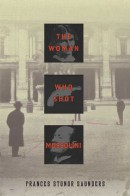A weekly roundup of noteworthy reviews from other sources.
 This review of The Woman Who Shot Mussolini, which will be published in the U.S. later this month, piqued my interest. (“The contrasts between would-be assassin and intended victim are straightforward and obvious, but in this oblique and subtle book Frances Stonor Saunders finds correspondences as well, tracing through their two lives thematic threads: nationalism, madness, religious fervor, politics as theatre and – above all – the instability of moral judgment.”) . . . Louis Menand reviews Manufacturing Depression by Gary Greenberg and The Emperor’s New Drugs by Irving Kirsch: “Both authors are hostile to the current psychotherapeutic regime, but for reasons that are incompatible.” . . . At n+1, Charles Petersen reviews the “massive” book that accompanies Ken Burns’ recent documentary about the national parks. (“Nature has no special ability to reconcile, particularly when burdened with all the weight of the exceptional. Thoreau famously said that we find in the wild only what we bring there ourselves.”) . . . The Economist reviews a collection of the work of New Yorker writer St. Clair McKelway, “a wry observer of the city’s low life, from the 1930s into the 1960s.” . . . Marisa Silver says that Eric Puchner’s Model Home, about a family that moves from Wisconsin to California in the mid-1980s, “cannily trades on the very characteristics that have come to define a recognizable California ‘experience’ in order to blast them apart, revealing the uncertainty and terror beneath the glossy postcard version we cling to and dismiss.” . . . Tim Martin digests four books (and nearly 2,500 pages) about the history and future of . . . the book.
This review of The Woman Who Shot Mussolini, which will be published in the U.S. later this month, piqued my interest. (“The contrasts between would-be assassin and intended victim are straightforward and obvious, but in this oblique and subtle book Frances Stonor Saunders finds correspondences as well, tracing through their two lives thematic threads: nationalism, madness, religious fervor, politics as theatre and – above all – the instability of moral judgment.”) . . . Louis Menand reviews Manufacturing Depression by Gary Greenberg and The Emperor’s New Drugs by Irving Kirsch: “Both authors are hostile to the current psychotherapeutic regime, but for reasons that are incompatible.” . . . At n+1, Charles Petersen reviews the “massive” book that accompanies Ken Burns’ recent documentary about the national parks. (“Nature has no special ability to reconcile, particularly when burdened with all the weight of the exceptional. Thoreau famously said that we find in the wild only what we bring there ourselves.”) . . . The Economist reviews a collection of the work of New Yorker writer St. Clair McKelway, “a wry observer of the city’s low life, from the 1930s into the 1960s.” . . . Marisa Silver says that Eric Puchner’s Model Home, about a family that moves from Wisconsin to California in the mid-1980s, “cannily trades on the very characteristics that have come to define a recognizable California ‘experience’ in order to blast them apart, revealing the uncertainty and terror beneath the glossy postcard version we cling to and dismiss.” . . . Tim Martin digests four books (and nearly 2,500 pages) about the history and future of . . . the book.

